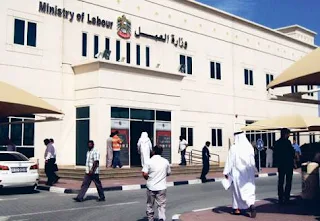Losing a job in the UAE can be particularly difficult due to the unique structure of the employment market. Here are some of the most significant challenges employees face:
Financial Strain:
- Limited Safety Net: Unlike some countries, the
UAE lacks a universal minimum wage, leaving many vulnerable to financial
hardship after job loss.
- Temporary Support: The Involuntary Loss of
Employment (ILOE) scheme offers some financial assistance, but it's only a
portion of the salary for a limited duration.
- Debt Management: Job loss can make managing existing
financial obligations like rent, loans, and credit card payments difficult.
Visa and Residency:
- Visa Dependence: Many UAE visas are tied to employment.
Losing a job can lead to visa cancellation and a short timeframe to leave
the country, creating stress for employees with families in the UAE.
- End-of-Service Benefits: Employees are entitled to
gratuity payments upon job termination after a specific period. However,
disputes or delays in receiving these benefits can worsen financial
difficulties.
Legal Issues:
- Labor Disputes: Disagreements with employers regarding
termination, unpaid wages, or benefits can arise. Understanding and
navigating UAE labor laws is crucial in such situations.
- Notice Period: Employment contracts typically have a notice
period for termination by either party. Leaving abruptly without proper
notice could lead to legal repercussions.
Additional Challenges:
- Competitive Job Market: Finding a new job quickly
can be difficult, especially in some sectors.
- Emotional Impact: Job loss can be emotionally
draining, adding to the overall stress of the situation.
Seeking Support:
Here are some resources that can help
employees facing job loss in the UAE:
- Ministry of Human Resources and Emiratisation (MOHRE): https://www.mohre.gov.ae/
Traditionally, there hasn't been
standalone "job loss insurance" available in the UAE. However, a
recent development offers some financial protection in case of involuntary job
loss:
- Involuntary Loss of Employment (ILOE) Scheme: This
government-introduced program provides partial financial support to
employees who lose their jobs involuntarily (through termination, not
resignation or disciplinary action).
Key Points about ILOE:
- Eligibility: Applies to most private and public sector
employees (exceptions include investors, domestic workers, temporary
workers, and those under 18).
- Benefits: Offers up to 60% of the average monthly salary over the past 6
months, capped at specific amounts (Category A: maximum 10,000 AED/month,
Category B: maximum 20,000 AED/month).
- Duration: Pays for a maximum of 3 consecutive months per claim.
- Requirements: Requires contributions from the employee for
at least 12 consecutive months before a claim can be made.
Limitations of ILOE:
- Temporary Support: It's not a long-term
solution and only provides limited financial assistance for a maximum of 3
months.
- Contribution Requirement: Employees need to have been
contributing for at least a year to be eligible.
Alternatives to
Consider:
- Emergency Savings: Having a well-funded
emergency savings account can act as a buffer during a job loss.
- Debt Management Plans: If facing debt issues due
to job loss, consider consulting a financial advisor or exploring debt
relief options.
Resources:
- ILOE Scheme: https://www.iloe.ae/








